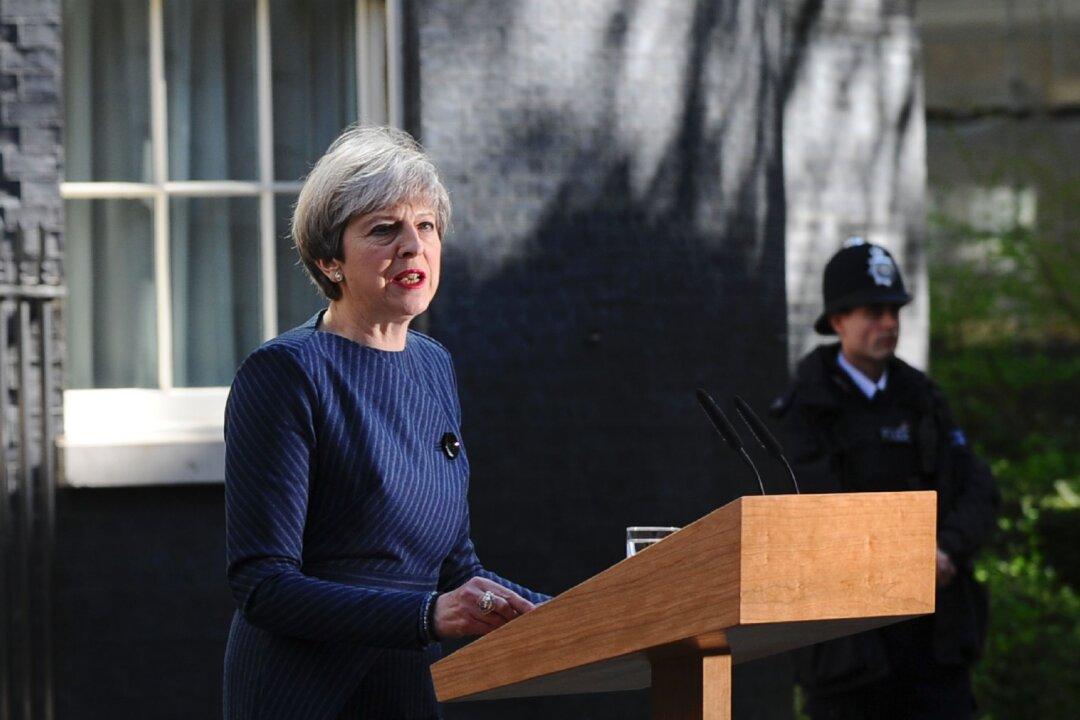U.K. Prime Minister Theresa May has announced a snap general election to take place in six weeks’ time.
The move stunned pundits as it reversed May’s repeated promises to wait until 2020. May said the election was to allow the government to strive forward with “unity” in Brexit negotiations.
“The country is coming together, but Westminster is not. If we do not hold a general election now, their political game-playing will continue,” she said.
The move was welcomed by leaders of the Liberal Democrats and Labour parties, parliamentary approval for an election on June 8th is almost certain.
Leader of the opposition Labour Party, Jeremy Corbyn, said in a statement: “I welcome the Prime Minister’s decision to give the British people the chance to vote for a government that will put the interests of the majority first.”
Current polling gives May’s Conservative party a 19 point lead over the Labour Party—the main reason many believe that she called the election.
May personally also has high levels of popularity, according to the polls. However, she became prime minister in the post-Brexit reshaping of the government through an internal party selection process, rather than a public vote.
A general election win would furnish her premiership with an iron-clad public mandate. She said it would also strengthen her hand at the negotiating table with the EU.
The government currently only has a slim majority of 330 of the 650 seats in Parliament, giving her a working government majority of 17 votes. With many of her own party members opposing Brexit, May no longer wants to constantly be looking over her shoulder to make sure she can win a vote in Parliament.
The referendum vote gave a clear mandate to leave the EU, but provided no clear mandate as to what voters expect from a post-Brexit world shaped by negotiations with the EU.
The parties will campaign on a platform of competing visions of a post-Brexit world. May hopes a victory would grant the government a more solid mandate to push for its particular version of Brexit.
The Liberal Democrats have already said that continued membership of the European Single Market will be an election pledge. Although the Lib Dems were whittled down to only 9 Members of Parliament in the last election, some believe as a pro-EU party they could regain many seats, and stymy a Conservative agenda by teaming up with the Labour party.
Since the election is being called mid-cycle, only 2 years since the last general election, it needs approval by two thirds of MPs in parliament. The vote is expected tomorrow, and with support already announced by the Labour party, it is widely expected to pass.





